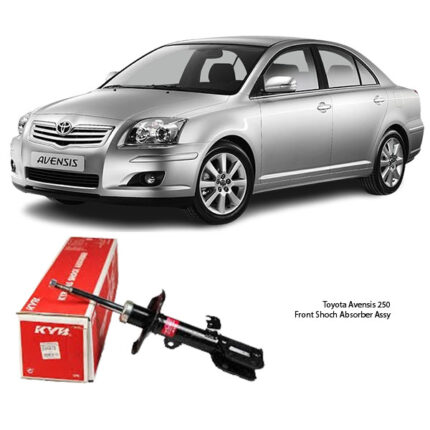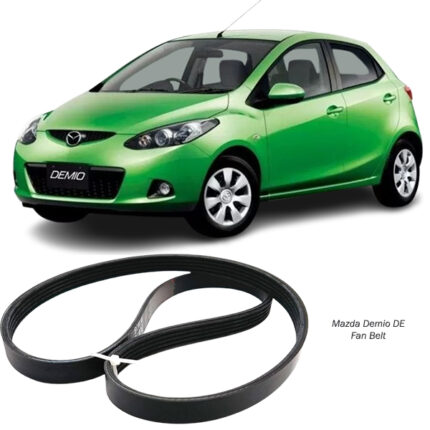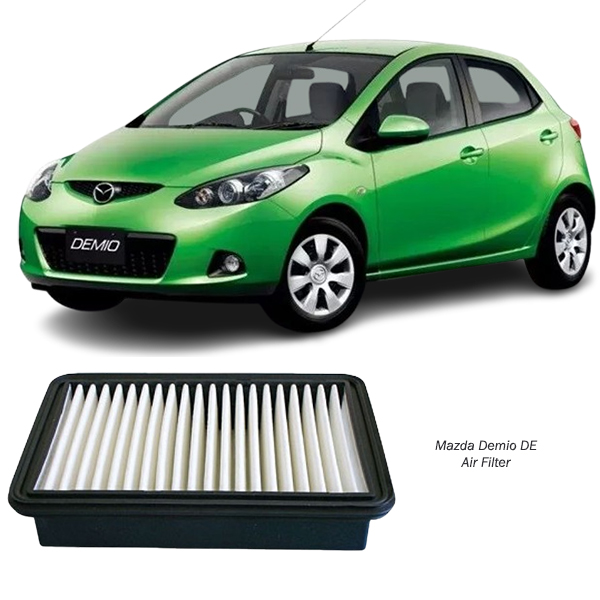-17%
Get Mazda Demio DE Air Filter Element P301-13-3A0 in Kenya
An air filter element is a replaceable component of the air intake system in internal combustion engines. It is designed to trap dirt, dust, pollen, and other airborne particles from entering the engine. By doing so, it ensures that the air reaching the engine is clean, enabling efficient combustion and preventing damage to sensitive engine components.
Functions of the Air Filter Element
- Purifies Air
- Filters out contaminants like dirt, dust, and debris from the air entering the engine.
- Enhances Combustion Efficiency
- Clean air allows for the precise air-fuel mixture required for optimal combustion.
- Protects Engine Components
- Prevents abrasive particles from damaging the engine’s cylinders, pistons, and other parts.
- Improves Fuel Efficiency
- Ensures efficient combustion, reducing fuel wastage and improving mileage.
- Reduces Emissions
- By enabling complete combustion, it minimizes the release of harmful emissions.
Construction of an Air Filter Element
The construction of an air filter element varies depending on the type and intended application but typically consists of the following parts:
- Filter Media
- The core component, made from materials like paper, foam, cotton, or synthetic fibers.
- Designed to trap airborne contaminants while allowing airflow.
- Supporting Frame
- Made of metal, plastic, or rubber, the frame provides structural integrity to the filter.
- Seal
- Ensures an airtight fit in the air filter housing to prevent unfiltered air from bypassing the filter.
- Pleated Design
- Many filters have pleated media to increase the surface area for filtration without restricting airflow.
Types of Air Filter Elements
- Paper Air Filters
- Made from pleated paper; cost-effective and commonly used in passenger vehicles.
- Single-use and replaced periodically.
- Foam Air Filters
- Made from foam materials, often used in off-road and performance vehicles.
- Washable and reusable in some cases.
- Cotton Air Filters
- High-performance filters made from oiled cotton gauze.
- Reusable and designed for improved airflow and filtration.
- Synthetic Air Filters
- Made from synthetic fibers, offering superior filtration and durability.
- Often washable and reusable.
- Carbon-Activated Filters
- Contain activated carbon layers to trap odors and harmful gases in addition to particles.
Benefits of an Air Filter Element
- Improved Engine Performance
- Clean air ensures better combustion, translating to smoother engine operation and increased power.
- Fuel Efficiency
- An efficient air filter helps maintain the correct air-fuel mixture, reducing fuel consumption.
- Prolonged Engine Life
- Prevents abrasive particles from causing premature wear and tear on engine components.
- Environmental Protection
- Reduces harmful emissions by enabling complete combustion.
- Cost Savings
- Regular replacement of the air filter avoids costly engine repairs caused by dirt accumulation.
How the Air Filter Element Works
- Air Intake
- The engine draws air from the environment into the air intake system.
- Filtration
- The air passes through the filter media, where contaminants are trapped.
- Clean air flows through to the engine.
- Continuous Operation
- The process repeats continuously, ensuring that only clean air enters the engine during operation.
Signs of a Clogged or Faulty Air Filter
- Reduced Engine Performance
- A dirty filter restricts airflow, causing sluggish acceleration and decreased power.
- Poor Fuel Economy
- Inadequate air supply leads to an imbalanced air-fuel mixture, increasing fuel consumption.
- Unusual Engine Sounds
- Whistling or coughing sounds can indicate a restricted air intake due to a clogged filter.
- Dark Exhaust Smoke
- Incomplete combustion caused by limited airflow may result in black smoke from the tailpipe.
- Check Engine Light
- A clogged filter can trigger the check engine warning due to reduced airflow to the sensors.
Maintenance of the Air Filter Element
- Regular Inspections
- Check the filter every 10,000–15,000 miles or as recommended by the manufacturer.
- Cleaning (Reusable Filters)
- Wash foam or cotton filters with a suitable cleaning solution and re-oil if required.
- Replacement (Non-Reusable Filters)
- Replace paper filters according to the vehicle’s maintenance schedule or sooner if visibly dirty.
- Monitor Driving Conditions
- Replace filters more frequently if driving in dusty or polluted environments.
- Ensure Proper Installation
- Incorrect placement can allow unfiltered air to bypass the filter, compromising engine safety.
Replacing an Air Filter Element
- Locate the Air Filter Housing
- Usually found near the engine bay, secured with clips or screws.
- Remove the Old Filter
- Take out the filter and inspect for dirt, damage, or wear.
- Clean the Housing
- Remove debris from the housing to ensure no contaminants enter the engine.
- Install the New Filter
- Place the new filter in the correct orientation and secure the housing.
- Test Drive
- Check for improved performance and ensure there are no unusual noises.
Factors Affecting Air Filter Lifespan
- Driving Conditions
- Dusty or polluted areas can clog the filter faster.
- Driving Habits
- Aggressive driving may demand more frequent filter replacements.
- Climate
- Humid environments may cause filters to deteriorate faster.
Common Myths About Air Filters
- “You Don’t Need to Replace Filters Regularly”
- False; neglecting replacement reduces engine performance and lifespan.
- “All Air Filters Are the Same”
- Quality and performance vary significantly between different types and brands.
- “Reusable Filters Don’t Need Maintenance”
- Even washable filters require periodic cleaning and re-oiling.
Benefits of High-Quality Air Filters
- Better Filtration Efficiency
- Removes smaller particles, protecting the engine from fine contaminants.
- Increased Durability
- Withstands harsh conditions and lasts longer than low-quality alternatives.
- Enhanced Performance
- Promotes optimal airflow for better engine response and fuel efficiency.
- Eco-Friendly Options
- Washable and reusable filters reduce environmental waste.
Conclusion
The air filter element is a small but vital part of your vehicle’s engine system. It ensures clean airflow, promotes efficient combustion, and protects sensitive engine components from damage. Regular inspection, maintenance, and timely replacement of the air filter are essential for maintaining engine performance, fuel efficiency, and longevity.
Investing in a high-quality air filter element and following manufacturer guidelines ensures a smoother, safer, and more cost-effective driving experience.
Follow us on Facebook for more parts.



